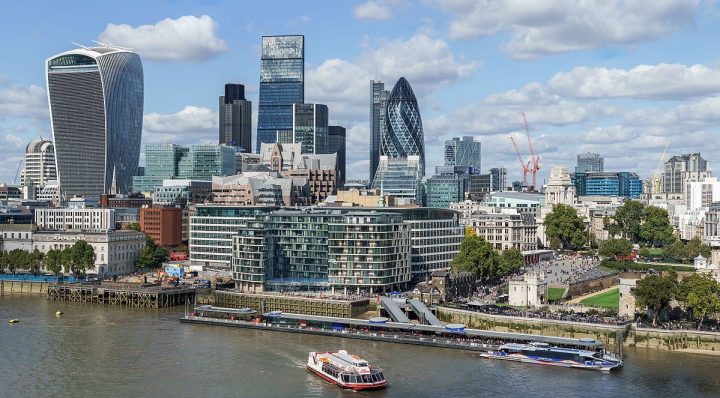Adam Ramsay 10 May 2017 for openDemocracyUK
Let’s not forget who it is that pays for Tory party campaigns, and that what they demand in exchange threatens us all.
In a way, the story of the last decade of British politics is a simple one. In 2008, the financial system collapsed, nearly taking the whole economy with it. In 2010, the same banks and financiers paid for more than half of the Conservative party’s election campaign, and started to tighten its grip on the media. Money men don’t give away cash out of the kindness of their hearts: they were buying something valuable. They were desperate to avoid regulation. And, largely, they did.
The political consequences of this failure to get to grips with big finance have reverberated across the country. An economy based on a tiny number of bankers getting rich produces a country in which people feel ever more alienated. A system which allows those who gambled with everyone’s future to walk off with millions is one which heats seething distrust of all kinds of institution. A society which funnels its surplus wealth into speculation on the housing market rather than investing in the future is one which knows, deep down, that its best days are behind it.
But political funding is at the heart of all of this. Because what the Conservative party knows only too well is that with a collapsed membership, it relies for its election funds on the same City which brought the economy to its knees a decade ago. What George Osborne understood was that the people who backed his two campaigns in 2010 and 2015 wanted something simple: that he stay out of the way of big finance; that, in the wake of the biggest banking crisis in a century, the Treasury do as little as possible to prevent another one; that no one would be made to learn any lessons; and that those who paid the price for the crisis wouldn’t be those who caused it.
Of course, that isn’t to say that people haven’t paid the price. Like a good errand-boy, Osborne and his spin-doctor front man did what their paymasters commanded. They used the funding of the City and the pulpit of their party to preach austerity, to shift the blame for the crisis from the private sector to the public sector, from the financial system to the welfare state, from the enriched to the impoverished.
And so, whenever the City collapses again – and it will – we will look back, and ask ourselves a simple question: how is it that we didn’t stop this from happening again? Why didn’t we regulate our banks properly? Why did we allow private debt piles to build themselves back up again so fast? Why didn’t we take the chance to restructure our economy?
And there is a simple answer to that question: look at who paid for our election campaigns. Look at how the Conservative party scraped into power in both 2010 and 2015; examine how it managed to fund sophisticated database software so it knew what to say to your grandad to persuade him to vote for them; how they funded vast campaigns in key seats; how they outspent and outspent and outspent.
Today’s decision of the Crown Prosecution Service not to prosecute MPs for overspending can’t just be seen as a question of a referee refusing to blow the whistle when one team is a little offside. This isn’t about obscure election spending rules and a sense of fair play – though it’s about that too. It is about the deep structural problems of British politics and the British economy. Because what matters is not just how and where the money was spent, but who it came from, and what they wanted – what they got – in exchange.
The City of London has long been a key actor in British politics. Blair and Brown famously courted it in the 1990s with their ‘prawn cocktail offensive’, and they too failed to grab the third rail of British politics. They too allowed it to grow unfettered. They too were funded by hedge funds and by other elite groups with dubious interests. But what the CPS has confirmed today is that big finance can pile up its pounds behind whichever party it thinks will do the least to regulate it, and that party can be confident it won’t face any real consequences.
Adam Ramsay is the Co-Editor of openDemocracyUK and also works with Bright Green. Before, he was a full time campaigner with People & Planet. You can follow him at @adamramsay.










